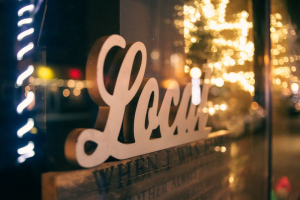It’s no secret that 2020 and 2021 have been tough for the meetings and events industry.
Event professionals have been among the worst-hit professions as the COVID-19 pandemic has stopped all in-person events. And, as of March 2020, the industry had already lost around $16.5 billion, and 90% of event professionals have seen some or most of their contracts disappear.
However, we seem to be seeing some light at the end of the tunnel, even though new variants of COVID can still hamper recovery for the sector. Indeed, the industry is expected to reach $1,552.9 billion by 2028, registering a compound annual growth rate (CAGR) of 11.2% from 2021 to 2028.
In this article, we are discussing five trends that we think will be important in 2022 for the meetings and events industry.
In-person events are returning, but virtual/hybrid will stay
Around thirty percent of planners expect they will host in-person events again in the first half of 2022.
The abrupt pivot that most event organizers had to make to virtual events has shown that people really favor in-person interactions and networking. Virtual meetings simply cannot measure up to live human interactions. Nevertheless, most experts agree that a virtual component is likely to remain.
Indeed, the uncertainty of new COVID variants emerging and their impacts on travel or even the possibility of holding in-person events mean that event planners need to be ready to switch almost instantaneously to virtual as the recent last-minute cancellation of IBC in Amsterdam showed.
Furthermore, some people will likely keep on preferring virtual for the sheer convenience of it. That could mean more revenue for the event as it is possible to reach a wider audience, especially since technology is now available to make streaming more accessible and cost-effective than before.
Event and venue safety will stay prominent
Photo by Nick Fewings on Unsplash
With the emergence of new variants, the protocols that have been put in place for large in-person events are likely to stay going forward. Proof of vaccination and negative COVID tests might even become more commonplace than they are now. Some countries already have more stringent policies for their events than others. Indeed, a recent EventMB survey showed that 71% of event planners in Canada required that attendees be vaccinated. In comparison, that number was only 11% in the UK.
It’s also unlikely that behaviors that were commonplace before the pandemic will come back anytime soon: we’re talking about people shaking hands, sharing the same pen, etc.
Ultimately, event planners will have to be transparent about all safety protocols they have in place and communicate heavily about the measures they are taking to ensure that safety. And this goes beyond the sanitization of surfaces; it can be proof of vaccination, negative tests, reducing the number of attendees, etc.
In-person events will be smaller
Sixty percent of event planners say their events will likely be smaller than pre-pandemic.
As COVID-19 remains a concern, there is a high probability that organizations will favor small, more intimate gatherings. This might make it easier for event planners to offer a really curated experience that will appeal to these small audiences. These “mini-events” can indeed allow for a more authentic opportunity to meet face-to-face.
Smaller-scale events are also more feasible, with a more negligible financial risk. Another upside is the possibility to use less traditional, more “boutique” types of event space. This is usually more attractive to the attendees than the standard conference room in a hotel and allows for excellent image-sharing potential on social media.
Events will be more local
Photo by Erik Mclean on Unsplash
For 42% of event organizers, there will be a change in format for in-person events as more local events are favored to counteract the impact of travel restrictions.
Furthermore, local events are perceived as safer and more controllable. The risk of transmission of COVID-19 is noticeably reduced by making sure only locals can attend, as it’s easier to control the risk if you organize an event in a community that has a low incidence of community spread.
Incidentally, this trend could also play a role in helping events become more sustainable, as it dramatically reduces the need for travel.
Shortages will impact the way events are designed
Many event professionals have suffered significant business losses during the pandemic, and some of them have left the events industry entirely. Whether it is individuals who have been laid off and had to find a job in another sector or small companies losing all their contracts and being forced to close down.
Now the events industry is facing a significant labor shortage that is likely to have a long-term impact on the way events can be organized and held.
In the same way, shortages of goods such as flowers and supply chain disruptions will force event designers to become more creative and innovative.
The consequences of these different kinds of shortages will be felt in several ways: financially as it might cost more than before to produce a quality event, logistically as planners might have to revise their timelines to incorporate that element of supply chain disruption, and creatively as the familiar options become unavailable and event professionals still have to produce the best experience for attendees.
The logistics aspects of an event are always challenging, even in “normal” circumstances. The current situation makes it even more difficult to deal with, so trust the experts to help you in that respect.
Photo by Shoot Studio
In conclusion
The fate of the meetings and events industry depends significantly on how countries will react to the (likely) emergence of new variants in the coming months.
Clients will have to alter their timelines to accommodate supply chain problems and goods or labor shortages, which means they will have to approve things well in advance. But, on the other hand, event planners must be prepared for the uncertainty, be able to pivot quickly, and get creative to find solutions.
To help you navigate these uncertain times, you can count on the teams at totm exposition. Contact us today if you have a project you would like to talk about!




